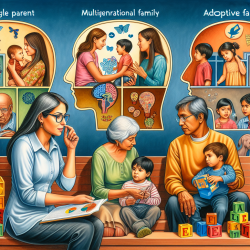As an online therapy practitioner, you're likely always on the lookout for ways to enhance your skills and better serve your clients. One intriguing area to explore is the relationship between social mindfulness and environmental performance. A recent research paper titled "Reply to Nielsen et al.: Social mindfulness is associated with countries’ environmental performance and individual environmental concern" provides insights that could be valuable for your practice.
In this study, researchers examined how social mindfulness (SoMi) correlates with both environmental performance at the country level and individual environmental concern. While this may seem unrelated to online therapy at first glance, there are several key takeaways that could help you improve your practice.
Understanding Social Mindfulness
Social mindfulness is essentially about being considerate of others' needs and perspectives in social interactions. It involves making choices that leave options open for others, fostering a sense of mutual respect and cooperation. This concept is particularly relevant in therapeutic settings, where empathy and understanding are crucial.
Key Findings from the Research
The study found that countries with higher levels of social mindfulness tend to perform better in terms of environmental sustainability. Additionally, individuals who exhibit social mindfulness are more likely to be concerned about environmental issues. These findings suggest a broader, interconnected web of prosocial behaviors that extend beyond individual interactions to societal and global levels.
Implications for Online Therapy
So, how can you apply these findings to your online therapy practice? Here are some practical steps:
- Foster Social Mindfulness in Clients: Encourage clients to consider the perspectives and needs of others in their daily interactions. This can be integrated into various therapeutic exercises and discussions.
- Promote Environmental Awareness: Given the link between social mindfulness and environmental concern, you can incorporate discussions about environmental responsibility into your sessions. This can help clients feel more connected to the broader community and foster a sense of purpose.
- Use Social Mindfulness as a Therapeutic Tool: Integrate social mindfulness practices into your therapy sessions. Techniques such as role-playing and perspective-taking exercises can help clients develop greater empathy and understanding.
Encouraging Further Research
The study also highlights the importance of ongoing research in this area. As a practitioner, staying informed about the latest findings can help you continually refine your approach. Consider exploring additional research on social mindfulness and its broader implications for mental health and therapy.
To read the original research paper, please follow this link: Reply to Nielsen et al.: Social mindfulness is associated with countries’ environmental performance and individual environmental concern.










